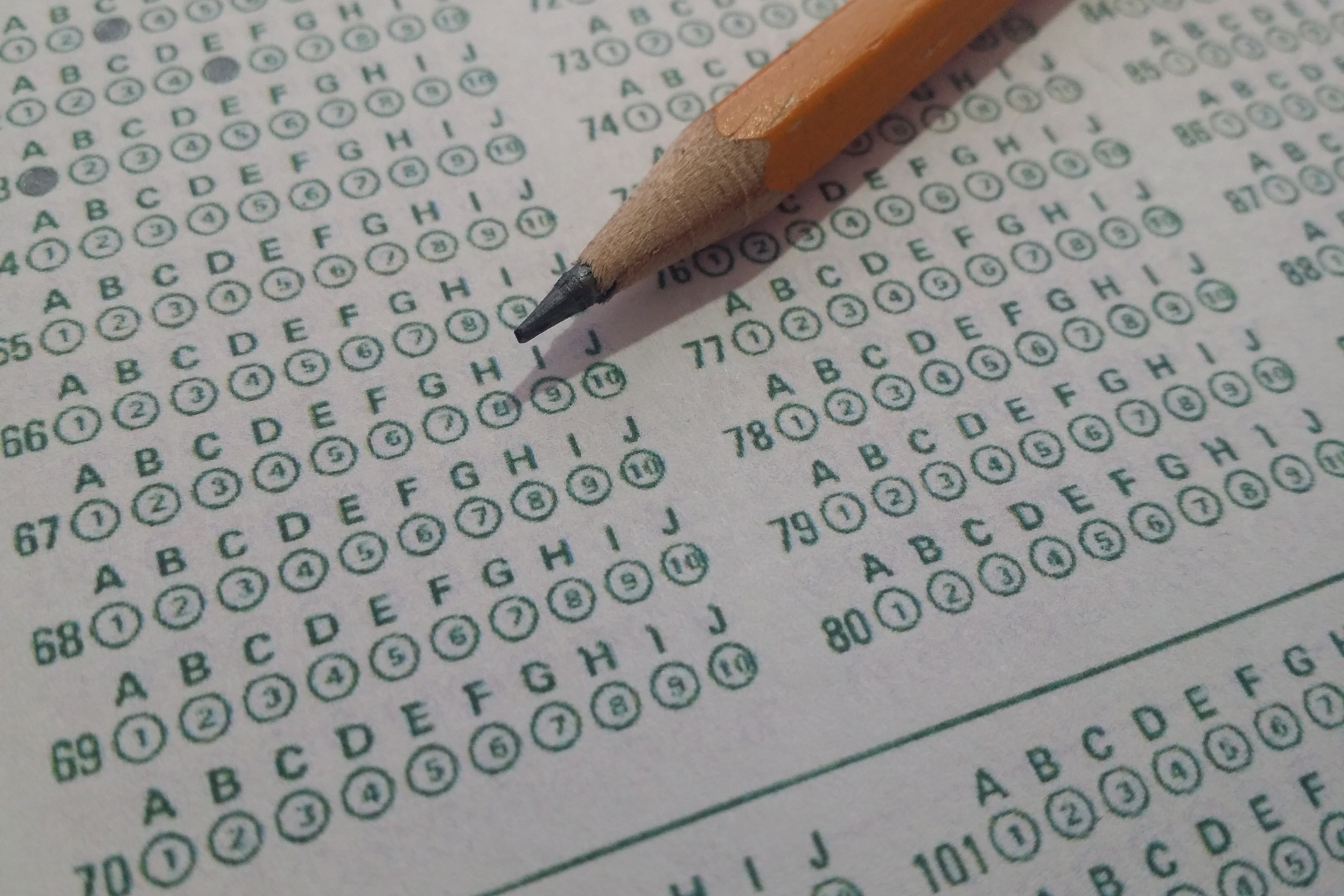
Table of Contents
The MCAT, or Medical College Admission Test, is a critical standardized test that students must take to gain acceptance into medical school. One of the key sections of this test is the reading comprehension section, which is designed to test a student's ability to read and understand complex texts, and answer questions based on that understanding. In this article, we'll explore strategies for achieving success on the MCAT reading comprehension section, including why reading comprehension is important for MCAT scores, understanding the structure of MCAT reading comprehension passages, tips for effective skimming and scanning techniques, how to identify key information in MCAT passages, strategies for answering detail-oriented MCAT questions, mastering inference-based questions on the MCAT, the role of vocabulary in MCAT reading comprehension success, using context clues to derive meaning from unfamiliar terms, time management tips for MCAT reading comprehension success, common traps and pitfalls to avoid on the MCAT reading comprehension section, and practice exercises and resources to improve MCAT reading comprehension scores.
Why Reading Comprehension is Important for MCAT Scores
Reading comprehension is an essential skill for success not only on the MCAT, but throughout medical school and beyond. The ability to read and understand complex texts is critical for medical students, who must read and analyze research papers, medical journals, and patient records. On the MCAT, reading comprehension is tested in the form of dense, complex passages followed by questions that require a deep understanding of the material. To achieve high scores on the MCAT, it's essential to hone your reading comprehension skills.
Furthermore, strong reading comprehension skills are crucial for medical professionals in their daily practice. Doctors and nurses must be able to read and interpret medical charts, patient histories, and lab reports accurately. They must also be able to understand and communicate complex medical information to patients and their families. Without strong reading comprehension skills, medical professionals may misinterpret critical information, leading to misdiagnosis or improper treatment.
Finally, reading comprehension is not just about understanding the words on the page. It's also about being able to critically analyze and evaluate the information presented. This skill is essential for medical professionals who must make important decisions based on the information they gather. By developing strong reading comprehension skills, medical students and professionals can improve their ability to make informed decisions and provide the best possible care for their patients.
Understanding the Structure of MCAT Reading Comprehension Passages
MCAT reading comprehension passages are typically structured around a central argument or idea. The passages are often dense and packed with information, making it critical to understand the main point of the passage and identify the supporting evidence. Pay attention to the structure of the passage itself: look for topic sentences in each paragraph, transitions between ideas, and supporting details.
It is also important to note that MCAT reading comprehension passages may include scientific jargon and technical terms. It is essential to have a basic understanding of these terms to comprehend the passage fully. Additionally, some passages may include graphs, charts, or tables that provide additional information. Take the time to analyze these visuals and understand how they relate to the main argument of the passage.
Another crucial aspect of MCAT reading comprehension passages is time management. You will have a limited amount of time to read and answer questions about each passage. It is essential to practice reading quickly while still comprehending the main ideas and supporting evidence. You can improve your speed by practicing with sample passages and timing yourself.
Tips for Effective Skimming and Scanning Techniques
Skimming and scanning are essential skills for success on the MCAT reading comprehension section. Skimming involves quickly reading the passage to get a sense of the overall content and structure, while scanning involves looking for specific details or phrases. Effective skimming and scanning techniques can save time and help you locate key information more quickly.
One effective skimming technique is to read the first and last sentence of each paragraph. This can give you a general idea of the main points without having to read the entire passage. Another useful technique is to pay attention to headings, subheadings, and bolded or italicized words, as these often indicate important information.
When scanning for specific details, it can be helpful to have a clear idea of what you are looking for before you begin reading. This can save time and prevent you from getting bogged down in irrelevant information. Additionally, using keywords or phrases from the question stem can help you quickly locate the relevant information in the passage.
How to Identify Key Information in MCAT Passages
Identifying key information is essential for success on the MCAT reading comprehension section. Look for details that support the main argument, and pay attention to any examples, statistics, or scientific terms that are used. Practice identifying key information by highlighting or underlining important phrases and passages.
Another important strategy for identifying key information in MCAT passages is to pay attention to the author's tone and perspective. Understanding the author's point of view can help you identify the main argument and any supporting evidence. Additionally, look for any contrasting viewpoints or counterarguments that are presented in the passage.
It's also helpful to familiarize yourself with common MCAT passage structures. Many passages follow a predictable pattern, such as presenting a problem, discussing potential solutions, and then evaluating the effectiveness of those solutions. By recognizing these patterns, you can quickly identify the main argument and supporting details.
Strategies for Answering Detail-Oriented MCAT Questions
Detail-oriented questions on the MCAT are designed to test your ability to understand specific details within a reading comprehension passage. To answer these questions effectively, go back to the passage and look for the information that relates directly to the question. Make sure to read the question carefully and consider all of the answer choices before selecting an answer.
It is also important to pay attention to the context of the information presented in the passage. Sometimes, a detail may seem insignificant on its own, but when considered in the context of the passage as a whole, it may be crucial to answering the question correctly. Additionally, be aware of any key words or phrases that may indicate the importance of a particular detail. These can include words like "however," "therefore," or "in contrast to."
Mastering Inference-Based Questions on the MCAT
Inference-based questions on the MCAT require you to use the information presented in the passage to make logical inferences or draw conclusions. To answer these questions effectively, read the passage carefully and use the evidence presented to make educated guesses about the answer. Pay attention to the author's tone and overall arguments, and consider how the information presented in the passage relates to the question.
One important strategy for mastering inference-based questions on the MCAT is to practice active reading. This means engaging with the text by underlining key points, taking notes, and summarizing the main ideas. By actively reading the passage, you will be better equipped to make logical inferences and draw accurate conclusions.
Another helpful tip is to pay attention to the context of the passage. Inference-based questions often require you to consider the broader context of the information presented, including historical, social, or cultural factors. By understanding the context of the passage, you can make more informed inferences and improve your chances of selecting the correct answer.
The Role of Vocabulary in MCAT Reading Comprehension Success
Strong vocabulary skills are essential for success on the MCAT reading comprehension section. Pay attention to unfamiliar words as you read the passage, and use context clues to determine their meaning. To improve your vocabulary skills, make a habit of reading challenging material and practice using context clues to determine word meaning.
Using Context Clues to Derive Meaning from Unfamiliar Terms
Context clues are critical for understanding unfamiliar terms in a reading comprehension passage. Look for surrounding sentences or words that provide clues about the meaning of a specific term. For example, if a passage uses the term "esoteric," a surrounding sentence might describe the term as "known only to a select few."
Time Management Tips for MCAT Reading Comprehension Success
Effective time management is essential for success on the MCAT reading comprehension section, which can be time-consuming and challenging. Practice by setting timed goals for yourself while you read and answer questions. Make a habit of skimming passages quickly and marking important information as you go. Stay focused and avoid becoming bogged down by complex passages or questions.
Common Traps and Pitfalls to Avoid on the MCAT Reading Comprehension Section
MCAT reading comprehension questions can be tricky and designed to trip up even the most experienced test-takers. Common traps and pitfalls include answer choices that are partially correct, overly specific, or based on assumptions rather than evidence. To avoid falling into these traps, make sure to read questions and answer choices carefully, and always refer back to the passage for evidence.
Practice Exercises and Resources to Improve MCAT Reading Comprehension Scores
There are many resources available to help improve your reading comprehension skills and ace the MCAT reading comprehension section. Practice with practice tests and exercises, attend MCAT preparation workshops, and work with a tutor or study group. Reading challenging materials on a regular basis can also help broaden your vocabulary and hone your reading comprehension skills.
By following these strategies and practicing regularly, you can achieve success on the MCAT reading comprehension section and work towards your dream of becoming a medical professional.











